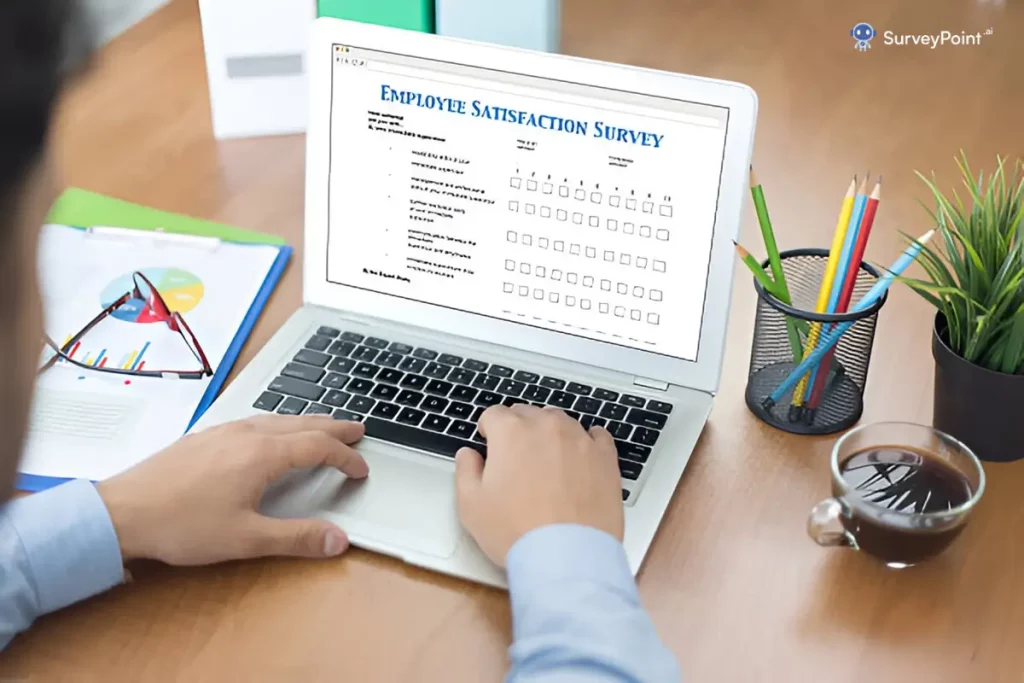
Effective hiring manager survey questions are crucial for optimizing your recruitment process and enhancing overall organizational performance. These targeted inquiries provide invaluable insights into the hiring experience, candidate quality, and recruitment team effectiveness.
By crafting well-designed survey questions, you can uncover pain points, identify areas for improvement, and refine your talent acquisition strategies. From assessing the clarity of job descriptions to evaluating the interview process, these surveys offer a comprehensive view of your hiring practices.
Whether you’re looking to streamline your recruitment workflow, improve candidate selection, or boost hiring manager satisfaction, the right survey questions can be a game-changer. In this article, we’ll explore essential hiring manager survey questions that will help you gather actionable feedback and elevate your recruitment efforts to new heights.
Hiring the right talent is crucial for the success of any organization. As a manager, your role in the hiring process can make or break your team’s performance. This blog aims to equip you with the essential questions to ask during an interview to unlock hiring success. By understanding what to ask and why, you can identify candidates who not only possess the necessary skills but also fit well with your company’s culture and values.
The Importance of Asking the Right Questions
Asking the right questions during an interview is more than just a formality. It helps you:
Understand the candidate’s skills and experience: This ensures they meet the job requirements.
Assess cultural fit: Determines if the candidate will thrive in your organizational environment.
Gauge potential for growth: Identifies if the candidate is likely to grow with the company and take on future challenges.
Preparing for the Interview
Preparation is key to conducting an effective interview. Here are steps to take:
Researching the candidate: Review their resume, LinkedIn profile, and any work samples.
Defining the job requirements: Clearly outline the skills, experience, and attributes needed.
Setting interview objectives: Know what you want to achieve by the end of the interview.
Must-Ask Questions: Hiring Manager Survey Questions
1. Can you tell me about yourself?
Purpose of the question: To get an overview of the candidate’s background and personality.
What to look for in responses: Look for a concise, relevant summary that highlights their professional journey and key achievements.
2. Why do you want to work here?
Evaluating motivation and company knowledge: Understand why the candidate is interested in your company and role.
Red flags to watch for: Generic answers or lack of knowledge about the company.
3. What are your greatest strengths?
Identifying key skills and attributes: Learn about the candidate’s top skills and how they align with the job requirements.
How to differentiate between genuine and rehearsed answers: Look for specific examples that demonstrate their strengths in action.
4. What are your weaknesses?
Understanding self-awareness and honesty: Evaluate if the candidate can recognize and articulate their areas for improvement.
The importance of constructive weaknesses: Look for weaknesses that are genuine but also show a willingness to improve.
5. Can you describe a challenging work situation and how you overcame it?
Assessing problem-solving abilities: Gain insights into how the candidate handles challenges and adversity.
Insights into past work behavior: Look for examples that show resilience, creativity, and effective problem-solving.
6. Where do you see yourself in five years?
Evaluating career goals and ambition: Understand the candidate’s long-term career aspirations.
Alignment with company’s growth trajectory: Determine if their goals align with the company’s future plans.
7. How do you handle stress and pressure?
Coping mechanisms and resilience: Assess the candidate’s ability to manage stress in the workplace.
Real-life examples of stress management: Look for specific situations where they successfully managed stress.
8. Can you provide an example of a time you worked as part of a team?
Collaboration and teamwork skills: Evaluate the candidate’s ability to work effectively in a team.
Leadership potential: Look for examples that demonstrate leadership qualities, even in non-leadership roles.
9. How do you prioritize your work?
Time management and organizational skills: Assess the candidate’s ability to manage their time and prioritize tasks.
Techniques for handling multiple tasks: Look for specific strategies they use to stay organized and efficient.
10. Do you have any questions for us?
Gauging candidate’s interest and curiosity: Determine the candidate’s level of interest and engagement with the role and company.
Assessing engagement with the role and company: Look for thoughtful questions that show they’ve done their research and are genuinely interested in the position.
You Must Know
Spice Up Your Kitchen: Take Our Cooking Survey for Culinary Inspiration 2024
Revealed: The Best Employee Engagement Survey Vendors of 2024
Post-Interview Evaluation: Hiring Manager Survey Questions

After the interview, it’s crucial to:
Analyze responses: Review the candidate’s answers and assess their fit for the role.
Compare candidates: Evaluate each candidate’s strengths and weaknesses.
Make the final decision: Choose the candidate who best meets the job requirements and fits with the company culture.
Common Mistakes to Avoid
Avoid these pitfalls to ensure a successful interview:
Asking irrelevant questions: Stick to questions that are relevant to the job and candidate.
Not listening actively: Pay close attention to the candidate’s responses.
Rushing the interview process: Take your time to conduct thorough and thoughtful interviews.
Legal and Ethical Considerations
Ensure your interview process is fair and compliant with laws:
Avoiding discriminatory questions: Do not ask questions related to age, race, gender, religion, etc.
Ensuring a fair interview process: Treat all candidates equally and fairly.
Understanding employment laws: Be aware of relevant employment laws to avoid legal issues.
Leveraging Technology in Hiring
Modern technology can enhance the hiring process:
Using AI for resume screening: Automate the initial screening process to save time.
Video interview platforms: Conduct remote interviews effectively.
Assessment tools for skills testing: Use tools to objectively assess candidates’ skills.
Expert Insights
Learn from the experts:
Quotes from HR professionals: Gain insights from industry experts.
Advice from industry leaders: Learn best practices from top professionals in the field.
Conclusion: Hiring Manager Survey Questions
In summary, asking the right questions during an interview is crucial for hiring success. By preparing thoroughly and knowing what to ask, managers can identify the best candidates for their teams. Remember to avoid common mistakes, stay compliant with legal standards, and leverage technology to streamline the process. For further education and best practices, stay engaged with industry resources and expert advice.

